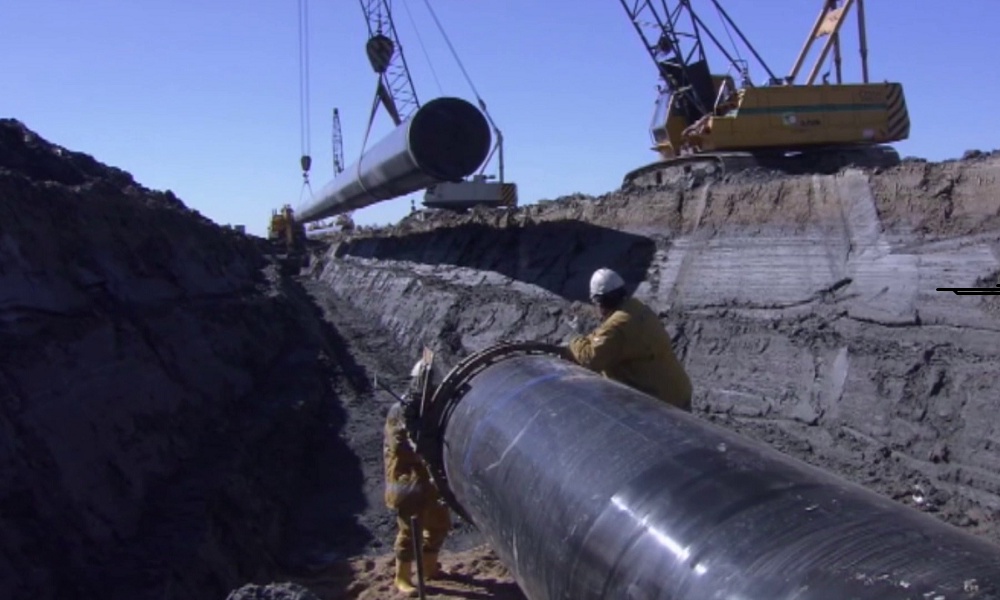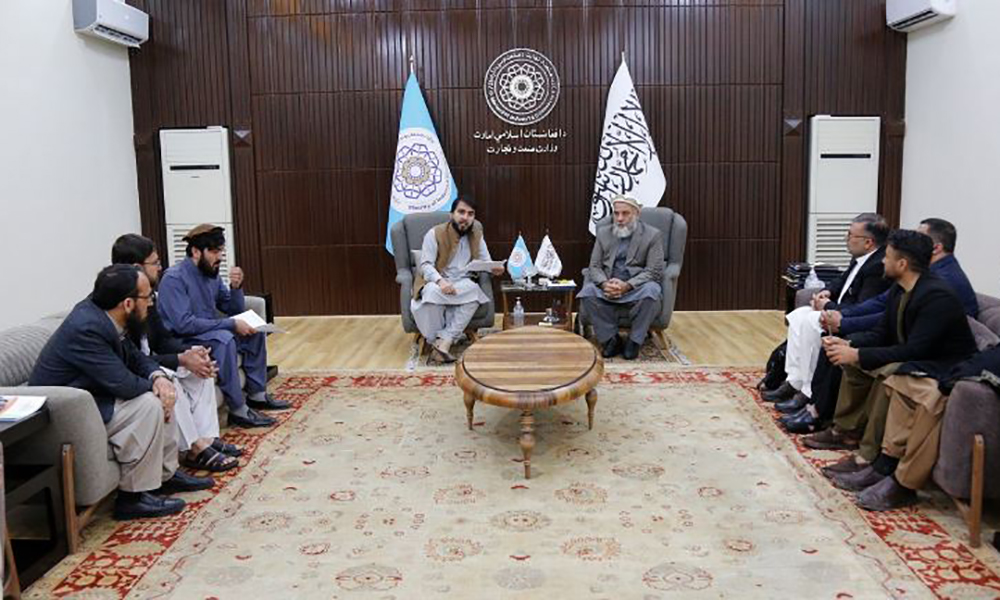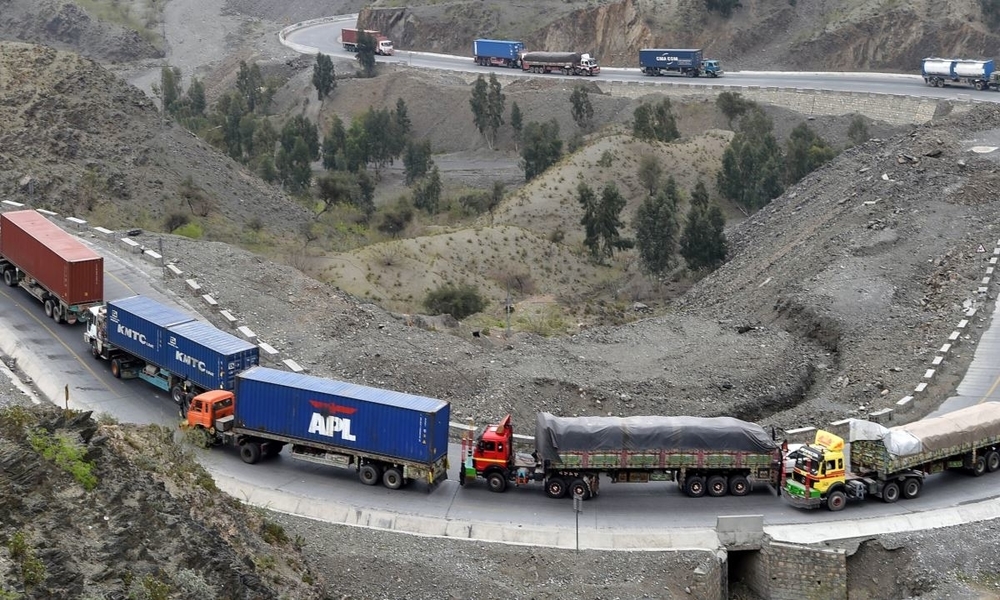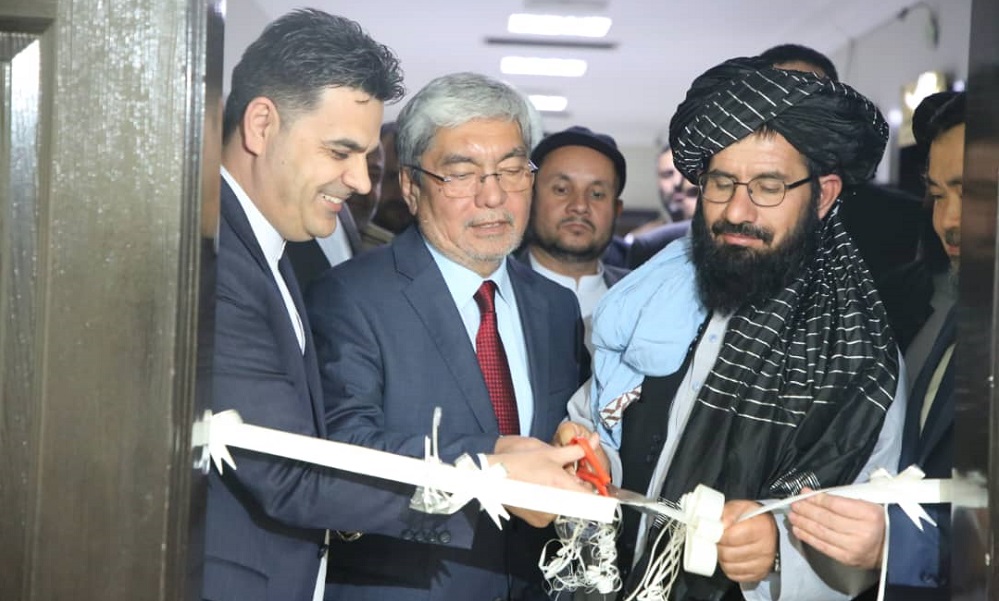Business
IEA says ground paved for the implementation of major economic projects in Afghanistan

The Islamic Emirate of Afghanistan (IEA) says all grounds have been paved for the implementation of huge economic projects in the country.
The Islamic Emirate officials have recently said that they are taking steps to start big economic and regional projects in the country.
According to them, the government is fully prepared to implement all major economic projects, including the transfer of 500 KV power lines, TAPI, and CASA-1000 projects that lead to regional connectivity.
The IEA spokesman Zabihullah Mujahid has emphasized that measures have been taken to implement these projects and to establish a railway between Central and South Asia.
“The Islamic Emirate has taken all the necessary preparations for the completion of these projects, including 500 KV power lines, TAPI and CASA-1000 projects,” said Mujahid.
“In terms of security, the number of employees and duties related to the government, the preparations have been made complete,” he added.
According to Mujahid, the government is waiting for the countries involved in these projects to show full readiness.
Meanwhile, the members of the private sector also call on the Islamic Emirate to increase its efforts to implement large economic projects, adding that the process of supporting these projects can get the country out of the economic crisis.
Economic experts meanwhile still consider regional economic projects as necessary to improve the country’s economy and demand serious attention from the government in this sector.
In the past years, the lack of security was said to be one of the biggest challenges to the implementation of immense economic projects in Afghanistan, but after the Islamic Emirate’s takeover, the problem has been resolved.
Business
Commerce ministry inks 10 MoUs to boost development of small and medium-sized businesses

The Ministry of Commerce and Industry said Thursday it has signed cooperation agreements with ten institutions to support the development of small and medium-sized enterprises.
Nooruddin Azizi, Acting Minister of Commerce and Industry, said: “In the implementation of projects, we must pay special attention to our activities and actions and try to make useful use of the projects according to the requirements and benefit the beneficiaries.”
These ten institutions are to present their projects, the total value of which is around over $1.1 million. The projects will be carried out in Kabul, Baghlan, Ghor, Herat, Logar, Nangarhar, Balkh, Badakhshan and Jawzjan provinces and provide direct jobs for about 1,000.
To date, the ministry has signed MoUs for 72 projects in total, collectively valued at about $53.6 million.
These agreements have been signed with domestic and foreign companies for the establishment of small and medium-sized businesses.
In accordance with the principles and laws of the Islamic Emirate and prioritizing the implementation of projects for immigrants and returnees and internally displaced people, the ministry said 635,865 people will benefit through jobs directly and over 4.3 million will benefit indirectly in 25 provinces once these projects are implemented.
Business
Export volume totals over $140 million in last month of 1402

The National Statistics and Information Authority (NSIA) confirmed Tuesday that in the last month of solar year 1402, (March 2024) Afghanistan’s exports totaled $141.1 million and imports totaled $789.6 million.
This was down from $174 million for exports in the same period in 1401. However, imports increased by $99.2 million in 1402, up from $690.4 million.
Most exports in the last month of 1402 went to Pakistan, India and the United Arab Emirates, while in the last month of 1401 exports went to Pakistan, India and China.
Business
Afghanistan-Kazakhstan chamber of commerce opens in Herat

The Ministry of Interior said the governor of Herat province Islam Jar met with Alim Khan Yasin Gildaye, Ambassador of Kazakhstan to Afghanistan, to discuss various issues around trade.
According to the ministry, the two sides discussed the expansion of trade facilities, increasing the volume of trade exchanges between traders of the two countries, reducing customs tariffs, solving the challenges of traders and issuing visas to them.
The Afghanistan-Kazakhstan Chamber of Commerce has been opened in Herat in order to facilitate and increase trade between the two countries.
-

 Sport4 days ago
Sport4 days agoACL fever grows as fixtures finalized
-

 World4 days ago
World4 days agoUS will not take part in any Israeli retaliatory action against Iran
-

 Latest News4 days ago
Latest News4 days agoOver 50 people dead in traffic accidents over Eid
-

 Latest News4 days ago
Latest News4 days agoUS identifies Kabul airport suicide bomber
-

 Latest News4 days ago
Latest News4 days agoGood rains enable DABS to increase power production in Kabul
-

 Business4 days ago
Business4 days agoAfghanistan-Kazakhstan chamber of commerce opens in Herat
-

 World3 days ago
World3 days agoIsraeli military vows response to Iran attack as calls for restraint mount
-

 Latest News3 days ago
Latest News3 days agoPakistani police give Afghans in Balochistan one day to leave
























